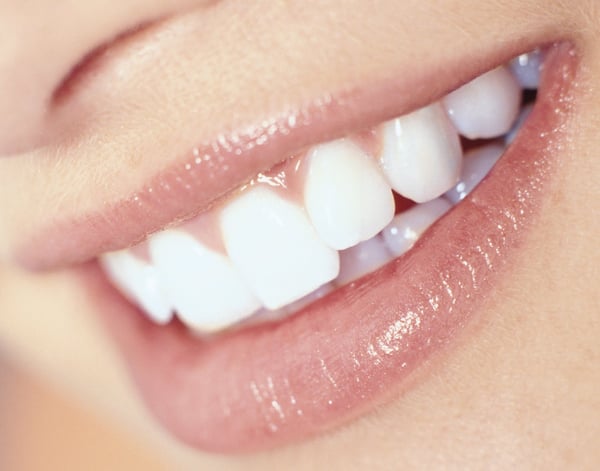
Patients usually complain of chronic or recurring pain upon drinking cold or hot beverages, hot foods, or breathing in and out. Pain is sharp and short, and lasting irrespective of the stimulus. Women may be affected by tooth sensitivity more than men, and we check for this issue as part of a holistic dental exam. It can affect all teeth but canines and premolars are reported to be affected the most often. Exposed root surfaces due to gum recession are a major factor for tooth sensitivity.
Dentin is one of the four major components of the teeth. It is the most abundant tissue that determines size and shape of the teeth. Dentin is found under the enamel in the crown. It is made up of many tubules that radiates from the pulp (nerve) to the surface. These tubules contain nerve fibers that are responsible for sensation of pain. In an open dental tubule any change in the surface (e.g. temperature change) will perceive as pain in the tooth. A sensitive tooth has more open tubules per surface area compared to a non-sensitive tooth.
What Causes Tooth Sensitivity?
Dentinal hypersensitivity can have multiple etiologies, or causes. Certain conditions such as decays, defective fillings, fractured or cracked teeth or gingival conditions should be ruled out.
Gum recession, tooth brush abrasion, picking at the cervical area of the teeth with finger nails, poor oral hygiene and leaving bacterial plaque on the root surface, and overzealous brushing can leave the teeth sensitive. Exposure to acidic foods and beverages, ingestion of chlorinated pool water, GI reflux disease, bulimia as well as bruxism (clenching) can contribute to dental hypersensitivity.
Reduced salivary flow (hyposalivation) and dry mouth (xerostomia) are also a risk factor for cavities and tooth demineralization and may exacerbate sensitive teeth. Hyposalivation may be due to medical conditions, and it is also a side effect of more than 500 over the counter and prescription drugs.
Treatment Options for Sensitive Teeth
Correct brushing technique to prevent further loss of dentin, and avoid brushing teeth immediately after ingesting acidic food. Avoid picking or scratching at the gum line.
Use an over the counter tooth paste that contains 5% potassium nitrate (e.g. Sensodyne), which acts by decreasing the excitability of the nerve fiber in the dentinal tubule. These pastes may take up to 3-4 weeks to show effectiveness.
Professionally dispensed pastes such as MI paste and Proclude can help seal and clog the dentinal tubules. Oral sprays such as Mist Oral that contains CoQ10, green tea extract, propolis extract, and Vitamin K can support healthy gum and would be a good adjunct to the above pastes.
In-office treatment options may include:
- Sealing the areas affected with bonding
- Polishing teeth with Proclude paste containing arginine that binds to the surface dentin and blocks the tubules
- Use of ozone trays that also acts by blocking the tubules and desensitizing the teeth
- Gingival grafting (surgical procedure)
As a part of the routine holistic dental exam the severity of teeth sensitivity should be addressed, diagnosed, and treatment options discussed. It is important to then follow up and reevaluate the therapeutic results during each recall appointment.
Michelle Janbakhsh, DDS, is a holistic dentist at National Integrated Health Associates, NIHA, a integrative medicine and holistic dental center serving the Washington,DC, Maryland and Northern Virginia metro area. Known as Dr. Jan to her patients, she practices integrative medical dentistry and treats the whole person.
.png?width=305&height=132&name=NIHAlogoBLUE_3_transparent%20(2).png)

